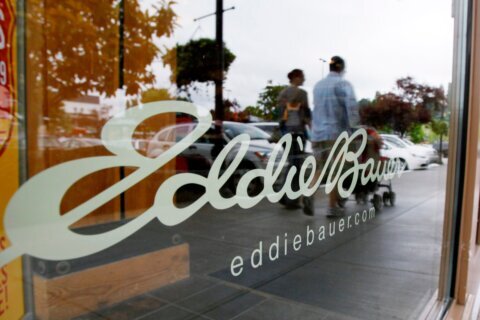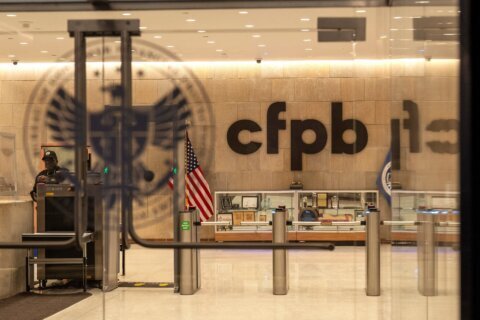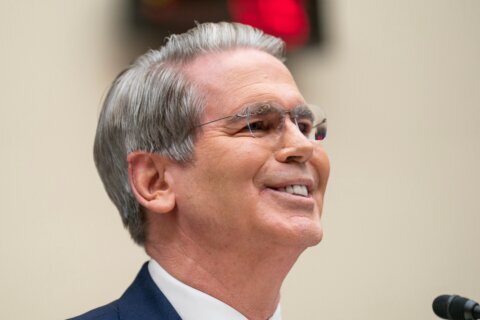Did you know that thank-you notes are so important that they have their own “National Day” on Dec. 26? This sleeper of a December holiday may not be well known, but the significance of expressing thanks, especially after an interview, continues to be a much appreciated courtesy. The thank-you letter has evolved since its handwritten roots in the 1400s, but the purpose remains the same — to politely express sincere gratitude.
Why Send a Thank-You Email?
— Polite is a professional superpower. A recent 2022 survey by Zety found that employers look for conscientiousness and agreeableness in potential new hires and job candidates. In a world where there is more automation and distance, it is interesting (and not surprising) that employers want to work with genuine and thoughtful humans. A thank-you email after any interaction during the hiring process is an excellent way to demonstrate these traits.
— Demonstrated interest. Although it doesn’t always feel that way during the hiring process, interviewing is a two-way process where mutual interest is important to a successful outcome. Given the volume of applicants and the volume of roles that many candidates are pursuing, a thank-you email makes it clear that you are indeed interested in continuing in the interview process after each step. It also enables you to stand out, since most applicants do not send thank-you messages. It is a simple, but high-impact way to distinguish yourself.
When Should a Thank-You Letter Be Sent?
Interview processes have become more involved; candidates may meet with a range of employees across the organization, some on multiple occasions. Should you send a thank-you note after each exchange?
In general, send one to each new person you meet after the first time you interact with them. Also, send a thank-you email after each substantive interaction, like a second or third interview, even if it is with a person you have met (and thanked) in the past. If possible, send the email on the same day, especially if you know they are making swift decisions. However, only send an email if you have enough time to make sure it is well written and error-free. A poorly written email will do more harm than good — so don’t rush if it means sacrificing quality.
What to Include in a Thank-You Email
Start with an authentic expression of appreciation for the opportunity and/or the time that was spent with you. You will get bonus points if you include any unique insights you gained or additional details that support your candidacy. Close by expressing your continued interest in moving forward in the process. Some managers will share your notes with others, so vary your content slightly to avoid looking like you just cut and paste the same message. Send each person their own professional thank-you letter, customizing each based on the person’s title, department, interests and hiring criteria.
The ability to write clear, grammatically-correct, properly formatted and professional correspondence is important for almost every role. Your thank-you email demonstrates your written communication skills — so be sure to make a great impression every time you send an email. It is always helpful to have a trusted contact review your messages to ensure the email is as compelling as possible.
Professional Thank-You Email Samples
At every stage of your interactions with a potential employer, it is important to keep the momentum moving forward, and employers may look for you to do that with timely, individualized follow-up thank-you notes. If you need inspiration before crafting your own thank-you emails following different stages of the interview process, refer to these examples.
Thank-You Email After a Phone Screen
After an initial phone screening interview with a recruiter who may be moving you to the next stage in the process, try a template like this:
— “Hi Rick, Thank you for spending time with me today to discuss the analyst role. I was pleased to hear that my background seems to be an ideal match for the team, and I look forward to the next steps in the process.”
— Dear Ms. Smith, Thank you for taking the time to speak with me today about my application to join X Company as an (insert job title). I know that you likely speak to many applicants, but I want you to know I appreciate you wanting to get to know me and review my background.
Again, I believe that my experience in the areas of A, B and C relate well to the position requirements, and I hope that I’ll be able to make substantial contributions to your company.
I remain very interested in this position and look forward to taking the next step of an in-person interview. Please don’t hesitate to be in touch if you would like any further information.”
[READ: How to Professionally Handle an Uncomfortable Situation in the Workplace.]
Thank-You Email After an Interview
No matter how well or poorly you think you did in an interview, a follow-up email is necessary, both as a matter of common etiquette and to demonstrate your real interest. Moreover, it is an opportunity to take one more bite out of the apple if you feel that you omitted something or didn’t answer a question you know you should have in retrospect. After an interview with a hiring manager or the hiring team, try a template like this:
— “Hi Mary, Thank you for your time today. I really enjoyed hearing more about the growth of the ABC team at Awesome Co. I would be thrilled to leverage the lessons learned when my current company experienced a similar expansion in 2019. If I can provide any additional information, please let me know. I am very interested in continuing in the interview process and appreciate your ongoing consideration.”
— “Dear Mr. Smith, It was a pleasure meeting you today at X Company. I appreciate you taking time out of your busy schedule so that we could get to know each other. Your question about A was excellent, and I am thankful it gave me an opportunity to speak about B.
As I was reflecting on our time together, it occurred to me that I responded to a question about C without mentioning D. I hope that this further information will aid in your deliberations and evaluation of my candidacy.
It was exciting to see X Company firsthand, and to learn more about the position and your expectations. I hope you will conclude that my experience doing A, B and C will enable me to provide exceptional value to your company.
Again, I want you to know how excited I am about the prospect of becoming part of your team and I thank you again for your consideration. Please don’t hesitate to be in touch if I can provide any other information that will help to make an appropriate evaluation of my candidacy.”
— “Hi Mary, It was great to see you today. I really appreciated meeting the team and learning more about the upcoming software transformation. As a user of your future software, I would love to help with the transition and play a role in maintaining productivity during a challenging time. My interest in Awesome Co. has never been stronger. Please let me know if I can answer any questions or provide additional information to demonstrate my interest and qualifications.”
[READ: When and How to List Volunteer Work on a Resume.]
Professional Email for a Status Update:
Inquiring just to keep yourself in front of people, especially when done too often, can be seen as a sign of desperation and a turnoff to employers. However, if you are truly interested in the position and have something to say that can be relevant, go for it. For example, if you are going in for a second interview someplace else, but you really would rather work at a place at which you’ve already interviewed, you can try checking on the status.
— “Dear Ms. Smith, I really enjoyed meeting with you on (add date), and was very impressed by you and the potential role that I can fill in your company. Because I’m most interested in working with you, I wanted to keep you up to date with my job search. Another company with which I’ve interviewed has invited me back for a second interview next week, and has indicated that if that goes well, a job offer will not be far behind.
In truth, there are a few reasons why I would prefer working at your company, including A, B and C. I hope you can give me a better insight as to where I stand with your company. Anything you can do to expedite progress on my application or information you can provide would be very much appreciated. I certainly hope that I won’t lose the opportunity to work with you because our timing is out of sync.
Again, thank you for your consideration. I hope to hear from you soon!”
[READ: What Is a CV or Curriculum Vitae?]
Check Your Work
Remember to double-check the spelling of each recipient’s name and the company name. You can look back at any calendar invites, emails, the company webpage or LinkedIn to confirm email addresses and spelling. If full names, correct spelling or contact information were not given to you, it is always OK to contact the recruiter or interview coordinator to ask for those details. In summary, an effective thank-you email after an interview does not need to be long or painful to write. A succinct, sincere and error-free message is the best way to go.
More from U.S. News
20 Best Jobs You’ve Never Heard Of
10 Best Part-Time Jobs to Pay the Bills
How to Write a Professional Thank-You Email After an Interview originally appeared on usnews.com
Update 04/28/22: This story was published at an earlier date and has been updated with new information.







